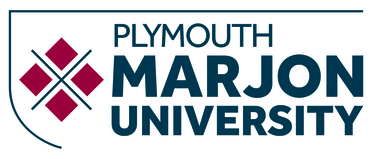Pathfinder Project – Preliminary Systems Mapping Report: A report delivered by The Plymouth Marjon University Pathfinder Team, June 2021.
Jane, Ben, Goss, Anthony, Downey, John and Brown, Phil (2021) Pathfinder Project – Preliminary Systems Mapping Report: A report delivered by The Plymouth Marjon University Pathfinder Team, June 2021. [Report]
|
Text
Pathfinder Project – Preliminary Systems Mapping Report A report delivered by The Plymouth Marjon University Pathfinder Team, June 2021..pdf Download (2MB) | Preview |
Abstract
Background Sport England has been exploring place-based project work across the UK and has explored whether, through the injection of focused support, local knowledge, skills and capacity can be developed to drive positive change in the system that surrounds and impacts upon a community's health & wellbeing. Plymouth Pathfinder is a 2-year programme that seeks to maximise the benefits that physical activity can bring to a cohort of children and young people in Plymouth. It is an initiative led by Plymouth City Council and Active Devon, and which Plymouth Marjon University are supporting as evaluation partners. The project hypothesis is that physical activity is a mediator to improved wellbeing, making people better able to tackle the issues they see as key to improving their lives, as well as bringing health gains through the physical activity itself. The programme will aim to link multiple systems across Plymouth and build on the evolving Trauma-Informed Network. The initial stage of this project requires the evaluation partners to, “to complete a ‘baseline’ study of the trauma�informed system in Plymouth and explore understandings of ‘trauma’ and ‘trauma-informed’ approaches. Methods Presented with a list of potential stakeholders, we identified key roles and individuals to interview. We then completed a series of 45-60 min semi-structured interviews with each of ten stakeholders using these interviews to explore different methods of mapping stakeholders to help understand the "system” and identify appropriate levers of change that may exist in the system. We developed a series of resources on the use of systems mapping and evaluation to help this element of the project to act as a springboard for further systems level work. Results We produced several draft systems maps. We identified a number of themes and insights from the interviews. These are outlined in the report. Within all interviewees there was a consistent and knowledgeable understanding of what “trauma-informed” approaches involved. Summary Findings • Trauma-Informed approaches were well understood by the interviewees; however, it was acknowledged that this is not the case with all those in “the system” and that the use of jargon can be problematic as it can slow down translation into practice and potentially mask real change. • The existing database of service level stakeholders is an extensive resource and there are existing networks that offer opportunities for sharing information and connecting with key stakeholders. • The range of work being undertaken in Plymouth, around trauma-informed thinking and special educational needs, is established and trauma-informed approaches are continuing to develop although in its early stages of awareness. There is however a gap in the rhetoric of trauma informed principles and the practical realities imposed by working practices and resource constraints. • The support system that surrounds young people can be fragmented and not conducive to optimal “trauma�informed approaches”. • The contribution of physical activity and sport in a trauma informed approach and special educational needs was agreed in principle by all participants. The active ingredient in these activities were the relationships withtrusted adults. • All interviewees stressed the need for sustainable approaches that can engage with the young people in question over an extended period and do not disappear once the funding has been taken away. • While it is important for young people to be able to "tell their stories", extreme caution should be exercised when asking people to re-tell their stories unnecessarily as this can be re-traumatising.
| Item Type: | Report |
|---|---|
| Depositing User: | Ms Raisa Burton |
| Date Deposited: | 17 Nov 2022 11:45 |
| Last Modified: | 17 Nov 2022 11:45 |
| URI: | https://marjon.repository.guildhe.ac.uk/id/eprint/17722 |
Actions (login required)
 |
Edit Item |

